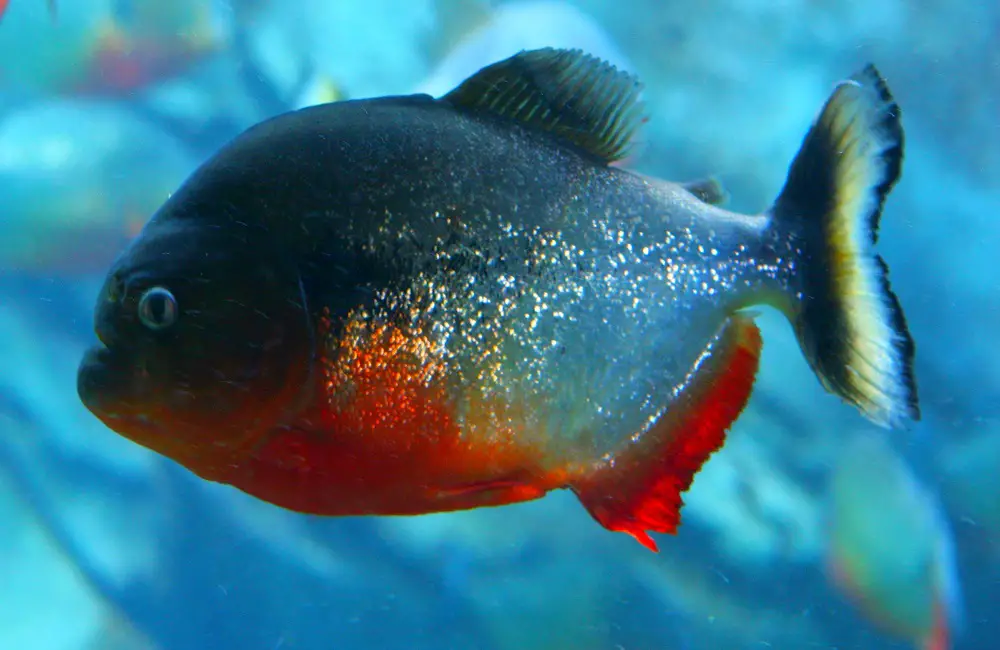Have you ever wondered over the question, “How long should I wait to feed my dog after deworming?” This popular question often pops up among pet lovers since the answer directly influences your dog’s well-being.
Many experts recommend waiting at least two hours to feed your dog after treatment.
Deworming is crucial to eliminate internal parasites like intestinal worms. Let’s dive into an enlightening discussion surrounding deworming treatments and care for our four-legged friends.
It will ensure your dog’s journey to a parasite-free life is well-informed and successful.
The Wait Time: How Long Should You Wait to Feed Your Dog?

If you’re a dog owner, you might be curious about the optimal time to feed your dog after deworming. This timing is vital for your pet’s overall well-being.
The general recommendation is to wait at least two hours after deworming your dog before offering their regular meal. This waiting period allows the deworming medication to work effectively within your dog’s body.
But why the wait?
Intestinal parasites can be eliminated with deworming medications. In severe infestations, these parasites can cause gastrointestinal upset, weight loss, and even more severe health issues.
When your dog ingests the deworming medicine, it works in the gastrointestinal tract. It targets the parasites, causing them to become weak or dead. These dead worms must be expelled from your dog’s body, usually through their stool.
If you feed your dog too soon after deworming, it could interfere with this process.
It’s like inviting guests to a party but not cleaning up afterward – the party isn’t as effective at eliminating unwelcome visitors.
The wait is crucial for the deworming medication to work correctly, ensuring your dog’s health and freedom from parasites. Remember, if you have any doubts or specific instructions from your vet, always follow their guidance. Your dog’s health is worth it.
Understanding Parasite Control And Its Importance

If you’re a dog owner, you’ve likely heard about parasite treatment, but what exactly is it, and why is it crucial for your furry companion’s health?
Parasite treatment involves administering medications to eliminate intestinal tract parasites, commonly called worms, from your dog’s digestive system. This routine procedure is vital to keep your four-legged friend healthy and happy.
Worm infestation can pose significant risks to dogs. These pesky parasites can cause digestive issues, weight loss, and more severe health problems. Young puppies are particularly vulnerable, as worm infections can hinder their growth and development.
The good news is that deworming medications can treat intestinal worms. An oral medication targets the worms, killing them or causing them to be expelled from the dog’s system.
The standard deworming procedure usually includes administering a specified schedule of medication doses to your dog, following the guidance of a licensed veterinarian.
Deworming your dog and providing proper care can eliminate the risk of intestinal parasites and ensure their well-being. Regular deworming maintains your dog’s health and cleanliness by minimizing the risk of shedding live worms in their feces.
Understanding deworming and its importance is essential for any dog parent. It’s a simple yet effective way to protect your canine companion from the discomfort and health risks associated with worm infestations.
Seek advice from your veterinarian for an optimal deworming program to ensure the well-being of your beloved pet.
The Deworming Process

Deworming is an essential aspect of dog care, whether you have a playful puppy or a seasoned adult dog. It prevents intestinal worms, which have harmful effects on your dog.
Parasite control in pups usually starts early, given their higher vulnerability to worm infestations. Puppies are generally dewormed at two, four, six, and eight weeks of age, followed by regular parasite treatment every three months throughout their first year.
For adult dogs, the frequency of parasite treatments can range from every three to six months, depending on their lifestyle and exposure to risk factors.
Deworming meds come in various forms, but oral medications are the most common. A deworming medication may come as a tablet or liquid; it effectively controls common intestinal worms.
It’s crucial to follow your veterinarian’s recommendations regarding the type of medication and the dosage.
The process involves giving your dog the prescribed drug without food. Doing so allows the medication to work effectively, targeting the worms present in the gastrointestinal tract.
Your dog may display changes in behavior within a few hours, such as increased thirst or appetite. Some dogs may even vomit dead worms or pass them in their stool.
A deworming treatment is a fundamental aspect of responsible dog ownership. It helps eliminate the risk of parasitic infections and ensures your dog maintains good health.
Your veterinarian can recommend a deworming schedule and the most appropriate medication for your dog. A proper parasite control regimen contributes to your dog’s longevity and overall well-being.
Signs of Parasite Treatment Success: Dead Worms And Improved Health
When treating your dog for worms, knowing if the treatment is working is essential. Two critical indicators of success are seeing dead worms in your dog’s stool and an overall improvement in their health and behavior.
Noticing dead worms in your dog’s feces may not be pleasant, but it’s a positive sign that the deworming treatment is effective. It means the medication eliminates intestinal parasites, ensuring your dog’s health.
Additionally, you’ll notice positive changes in your dog’s behavior. Symptoms like losing weight, diarrhea, and a dull coat will improve. Your dog’s appetite will return to normal, they’ll have more energy, and their fur will become shinier and healthier.
Best of all, monitor your dog’s progress and consult your veterinarian if you have any concerns.
Puppy Deworming And Special Considerations
When it comes to deworming puppies, a proper schedule is crucial. Most vets advise pet parents to consider parasite treatment at two to three weeks.
Repeat parasite treatment every two weeks until they’re three months old, then transition to once a month until they’re six months old. It helps eliminate common intestinal parasites and supports your puppy’s growth.
If your dog is pregnant or nursing, special care is needed. Please consult your vet for a deworming plan, as pregnant dogs can pass worms to their puppies. Parasite treatment in pregnant dogs should be done under professional guidance.
In summary, follow the recommended deworming schedule for puppies and consult your vet for pregnant or nursing dogs to ensure your furry companions stay healthy and parasite-free.
Tips For A Successful Deworming Experience

Parasite treatment for dogs doesn’t have to be a hassle. For a seamless process, it’s best to adhere to these guidelines:
1. Consult your vet: Seek your vet’s guidance on the proper worming treatment and schedule for your dog’s specific needs.
2. Administer medication properly: Give the medicine as directed, preferably on an empty stomach. Conceal it within a treat or use a pill dispenser to make administration easier.
3. Monitor your dog: Watch for signs of worm infection, like changes in puppy poop or behavior. Consult your vet if you see visible worms or your dog vomits after parasite treatment.
4. Maintain a healthy diet: Offer an easily digestible meal like a poached chicken or a bland diet, including dog food. Gradually return to regular food after parasite treatment.
5. Properly dispose of waste: Ensure hygienic disposal of your dog’s waste, as it can contain infectious worm eggs.
Following these tips can make the treatment easy and keep your pet healthy and happy.
The Role Of Diet After Deworming

After deworming your dog, it’s essential to consider their diet. Opt for easily digestible meals like boiled chicken and rice. Avoid rich or fatty foods that might upset their stomach, especially after parasite treatment.
Monitor your dog’s appetite and overall health. Some dogs might have a decreased appetite temporarily. Gradually shift back to a regular diet as the dogs recuperate.
Remember that dietary adjustments may vary depending on the type of worming meds, so follow veterinary recommendations. A bland meal for a day or two can help ensure their stomach settles after the second dose.
Keep a close eye on your puppy’s health during this period to ensure they are fully dewormed and thriving. Regularly check their fecal sample for signs of eliminated roundworms.
Refrain from visiting dog parks until your pet has completed treatment to minimize the risk of parasite transmission. Be vigilant for signs of upset stomach, such as pale gums, and consult your vet if necessary.
Final Thoughts
Proper timing after parasite treatment is crucial for effective medication and your dog’s health. After treatment, a dog’s diet plays a vital role in recovery.
Avoid rich or fatty foods that might cause GI tract upset to sensitive stomachs. The food choice may vary depending on the type of drugs used, so consult your vet for guidance.
Gradually transition them back to their normal diet as they recover. Monitor overall health, particularly any signs of gastrointestinal discomfort. Proper nutrition helps eliminate roundworms and ensures your dog’s optimal health.
Frequently Asked Questions
How long should it take to eat after deworming?
Wait a few hours before offering your dog a light meal after the treatment.
Is it advisable to give deworming drugs to dogs on an empty stomach?
It’s best to do the treatment on an empty stomach for dogs to maximize the effectiveness of the medicine for eliminating roundworms.
Can I give my dog water after deworming?
You can give your dog water post-treatment to keep them hydrated.
Does dewormer make dogs hungry?
Dewormers can sometimes make dogs hungrier as they eliminate worms, affecting their appetite.




